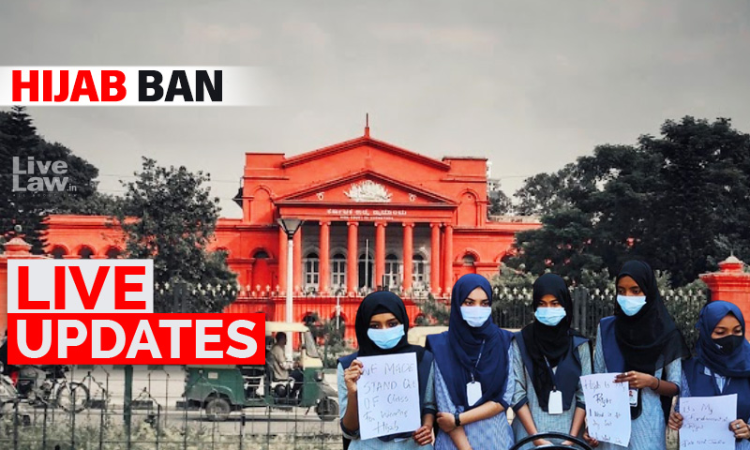Hijab Ban- Karnataka High Court Full Bench Hearing (Day 7)- LIVE UPDATES
LIVELAW NEWS NETWORK
21 Feb 2022 2:07 PM IST

Live Updates
- 21 Feb 2022 4:02 PM IST
AG: Article 25 has different sections. To establish right under Article 25, they should first prove religious practise, then that it is an essential religious practice, then that ERP does not come in conflict with public order, morality or health or any other fundamental right.
- 21 Feb 2022 3:50 PM IST
AG quotes from the judgment: "There is nothing which a man can do, whether in the way of wearing clothes or food or drink, which in not considered a religious activity. Every mundane or human activity was not intended to be protected by Constitution under the guise of religion"
Next Story


